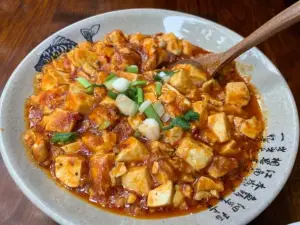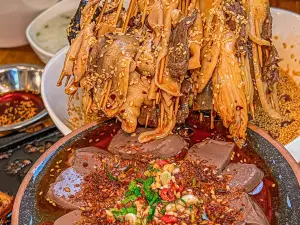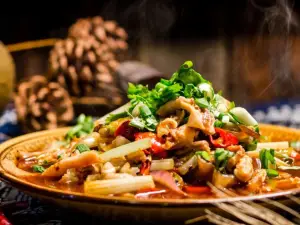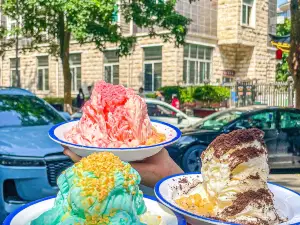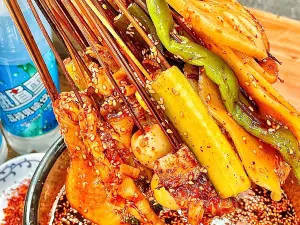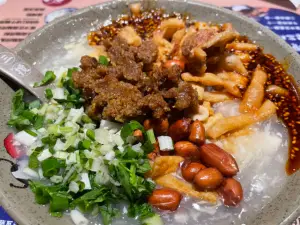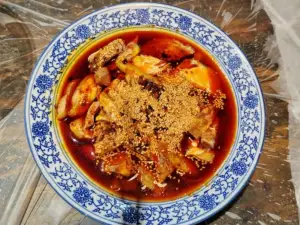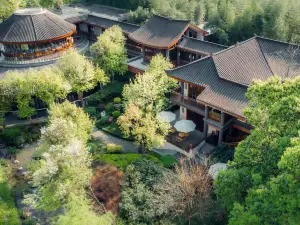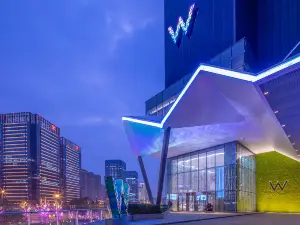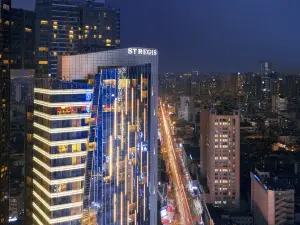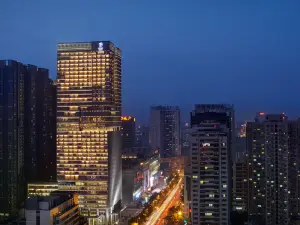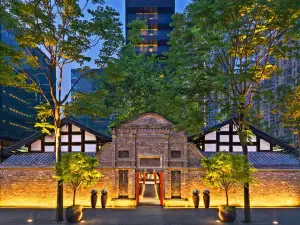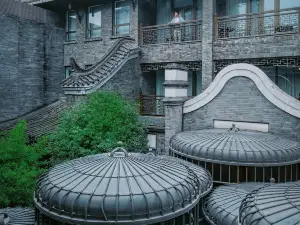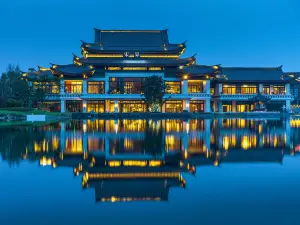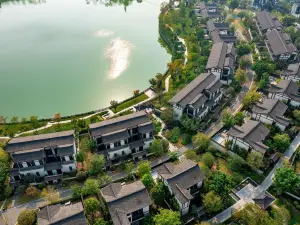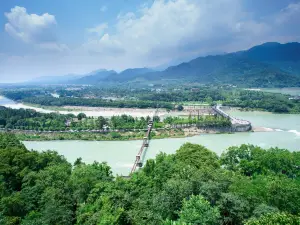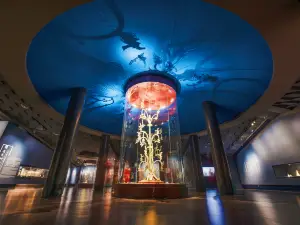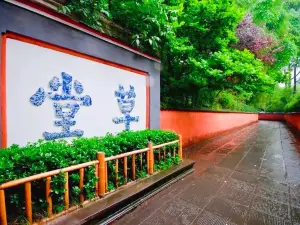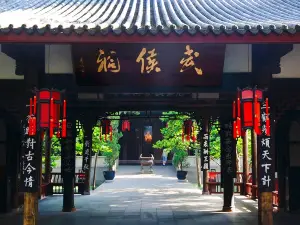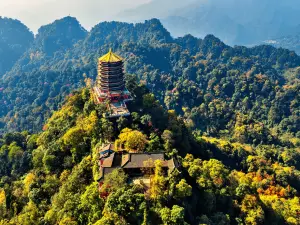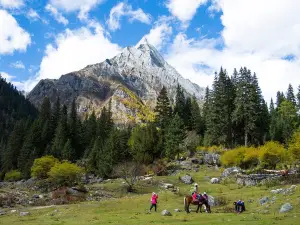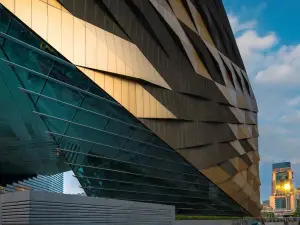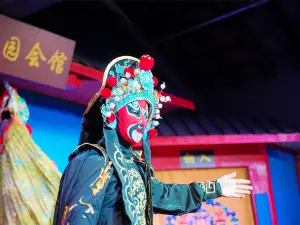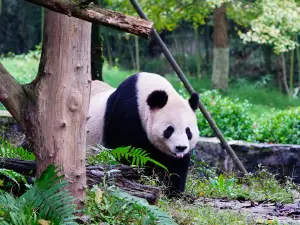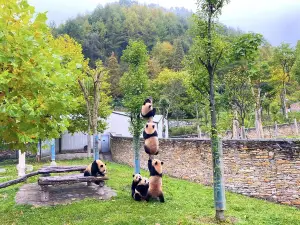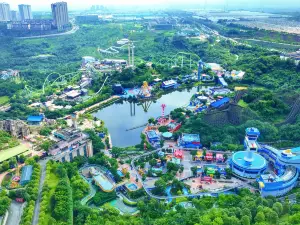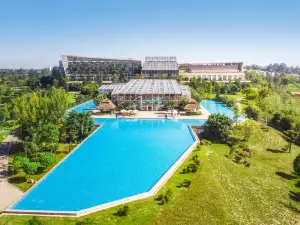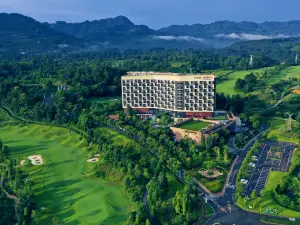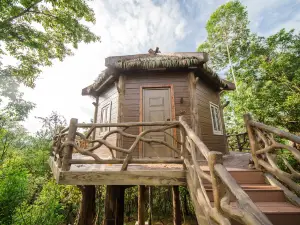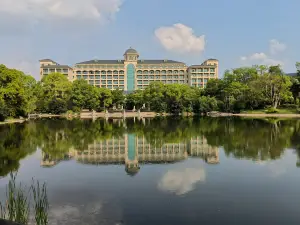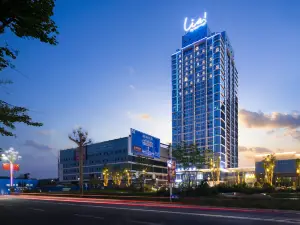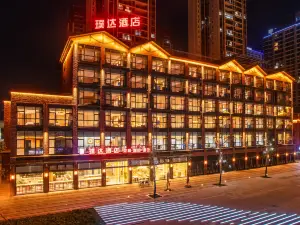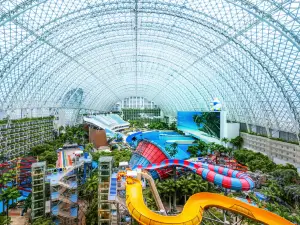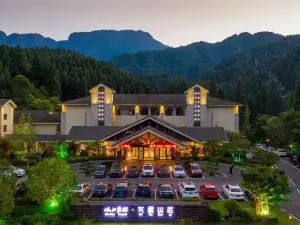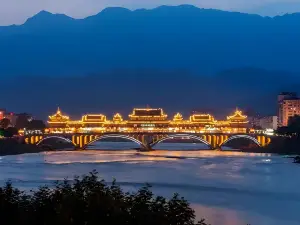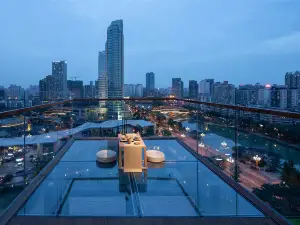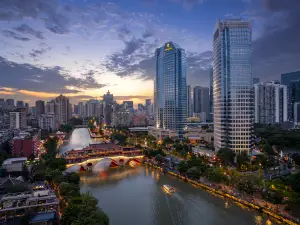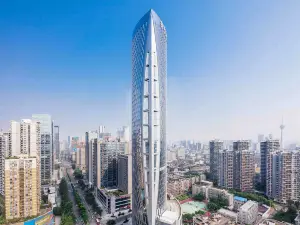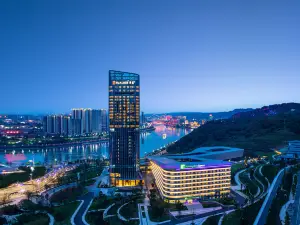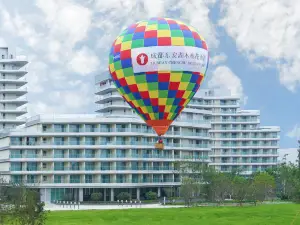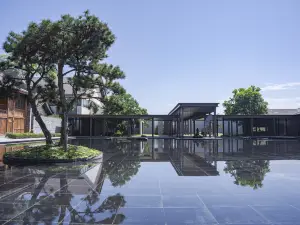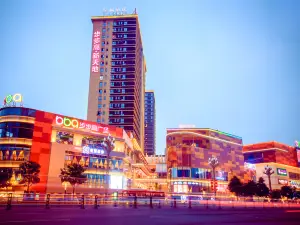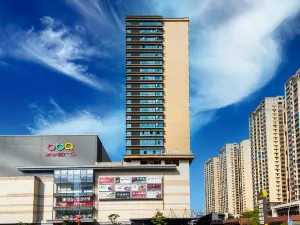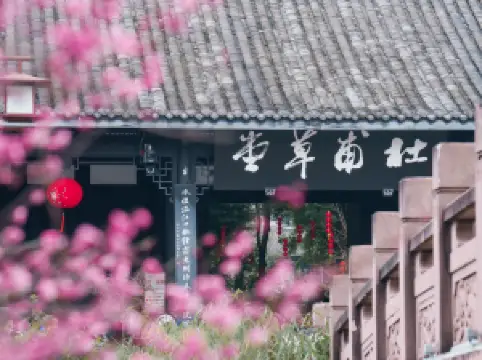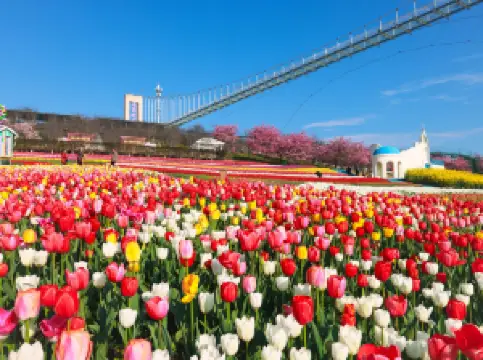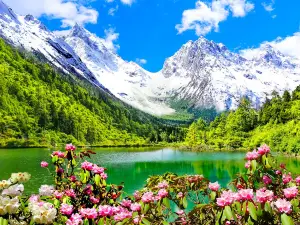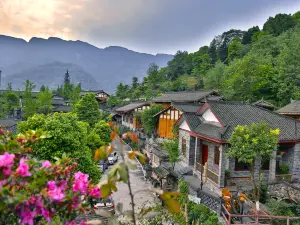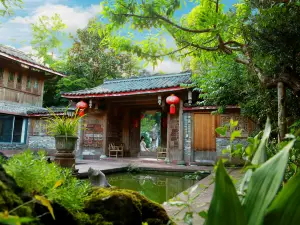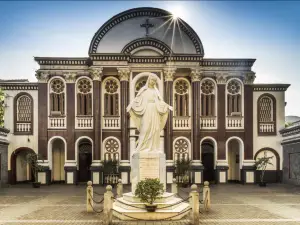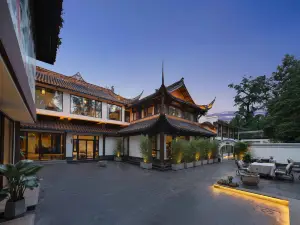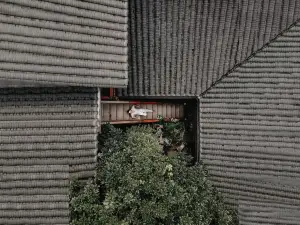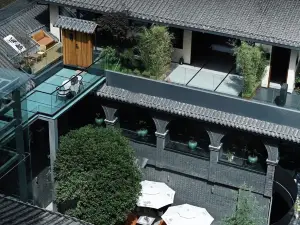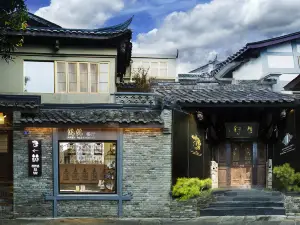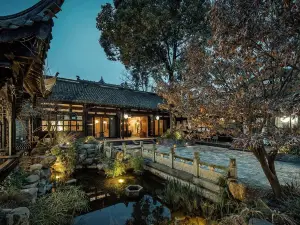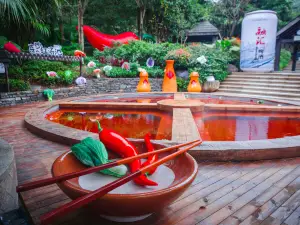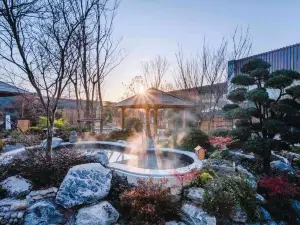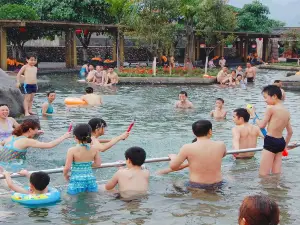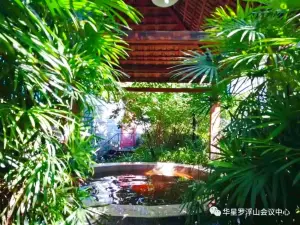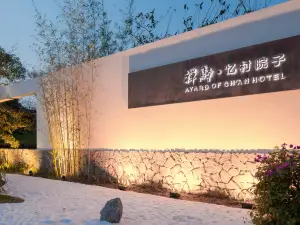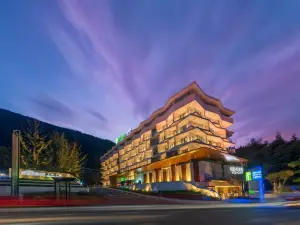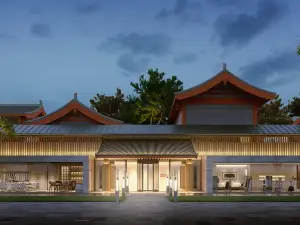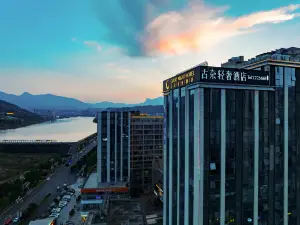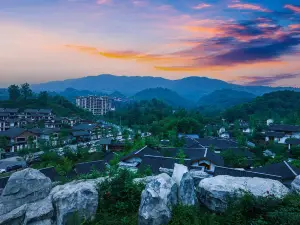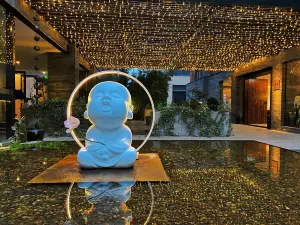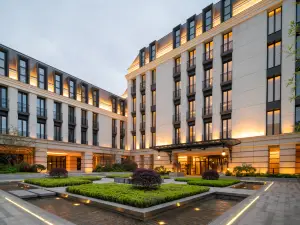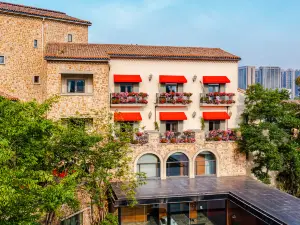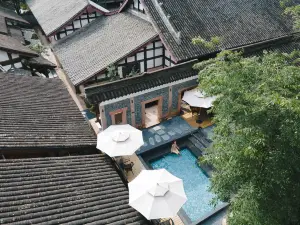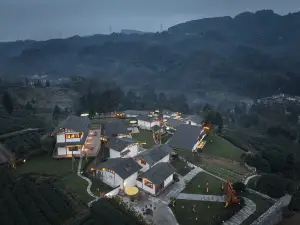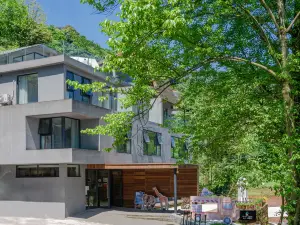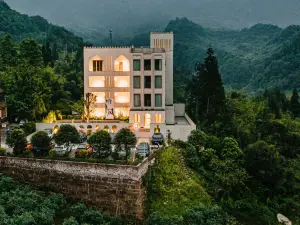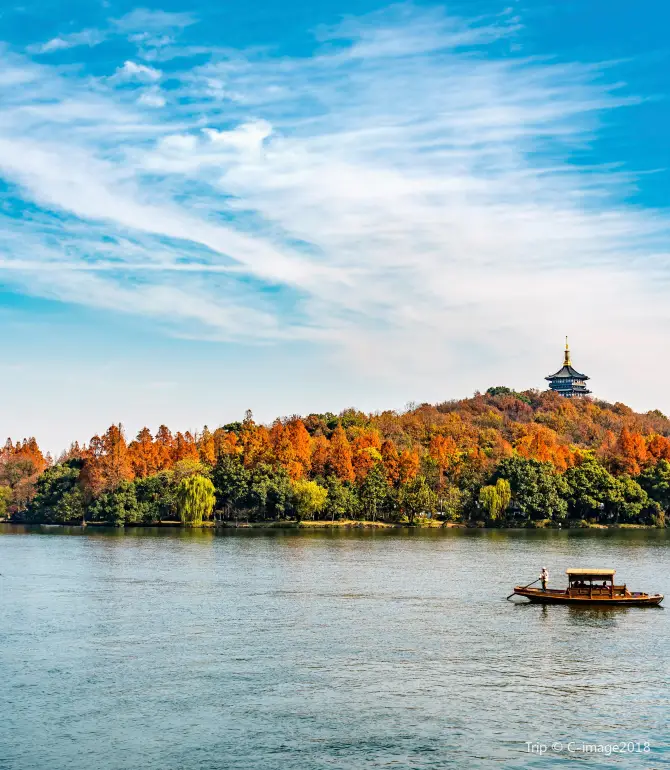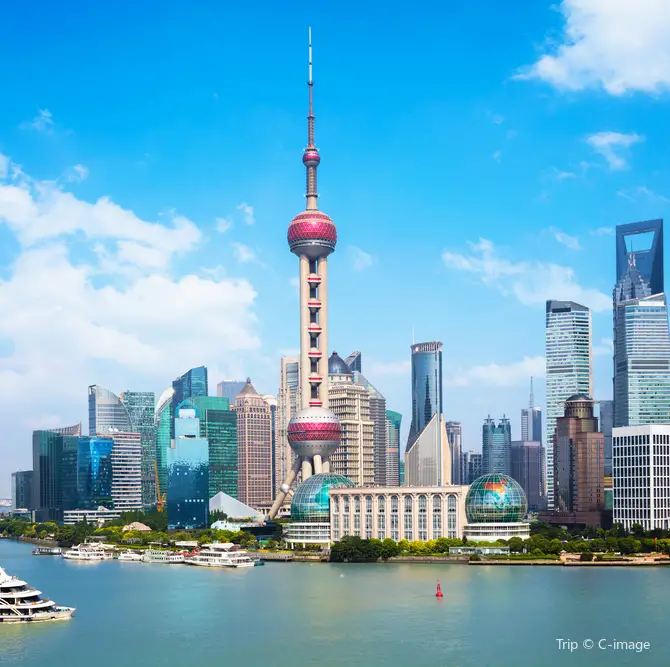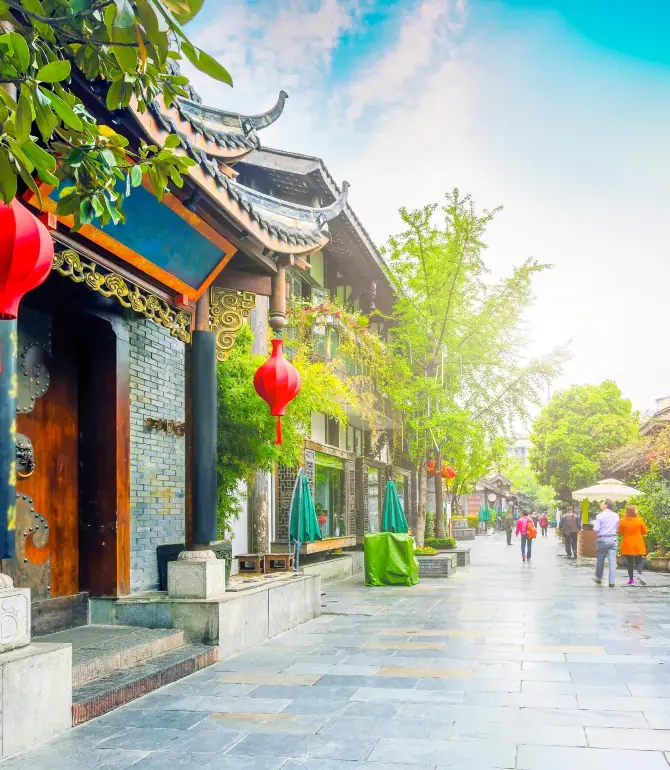Things to Do in Leshan in 2025 - Top Attractions, Local Food, Hotels & Travel Tips (Updated April 2025) | Trip.com
About Leshan
Recommended trip: 1–2 day(s)
Recommended trip: 1–2 day(s)Current Weather Conditions
Leshan Local Experiences Map

Trending in Leshan
Leshan Local Travel Guide 2025
Leshan Brief Guide
True to its name, Leshan is a "city of mountains and rivers". The landscape here is magnificent, with many historic sites, and it is one of Sichuan's great tourist destinations. Mount Emei, in the area of Leshan, is one of the four great Buddhist mountains in China. Deep in the mountains, there are many temples, suffusing the area with a serene Buddhist atmosphere. From here you can also gaze out at the sunrise and the sea of clouds. The Giant Buddha is also a scenic spot you absolutely must visit. Designed as a statue of a seated Maitreya Buddha, it is a fine work of cliff-carving from the Tang Dynasty. Additionally, you can take a ride on the "living fossil of the Industrial Revolution", widely known as the "Jiayang small train". Chugging cheerfully along in the mountain wilderness showcases the elegance of trains made in the local area.
Leshan Must-try Local Experiences
1. Pilgrimage to Leshan Giant Buddha and Lingyun Temple Gaze upon the Leshan Giant Buddha, the tallest stone-carved Buddha in the world. Descend the cliff staircase for a closer look or take a boat ride for a full view of this UNESCO World Heritage site. Afterwards, head to Lingyun Temple to experience the serenity and solemnity of Buddhist culture. 2. Visit Jiading Lane and Handicraft Experience Visit Jiading Lane to take photos of traditional buildings and streetscapes in the ancient town, capturing its unique style and historical atmosphere. You can also participate in handicraft experiences, such as bamboo weaving and paper-cutting, to appreciate the charm of these traditional skills. 3. Leshan Sichuan Opera Face Changing Show Watch the wonderful Sichuan Opera Face Changing Show and feel the unique artistic charm of Sichuan Opera and the exquisite skills of the actors. You will be amazed by the magic and rapid changes of the face-changing. 4. Enjoy Tea Culture Engage in the tradition of tea drinking at a local tea house. Sample various teas, observe the brewing process, and enjoy the peaceful ambiance. 5. Participate in the Leshan Big Buddha Tourism and Culture Festival The Leshan Buddha Tourism and Culture Festival is held in autumn every year, bringing together a wealth of cultural activities and performances, including folk performances, concerts and food festivals, to experience the diverse culture of Leshan. 6. Savour authentic Sichuan Cuisine When in Leshan, you must try authentic Sichuan cuisine, such as Sichuan hot pot, stilt-legged beef and sweet-skinned duck. You can enjoy these authentic flavours at the night markets and snack streets in Leshan. 7. Stroll around Zhanggongqiao Street Wandering down Zhanggongqiao Street reveals a variety of unique food stalls and handicraft shops, perfect for purchasing local specialty souvenirs. The unforgettable atmosphere of the lively night market adds to the experience. 8. Take a Panoramic Photo of Leshan Big Buddha The view of Leshan Giant Buddha and both sides of the Minjiang River from the top of Wuju Mountain is one of the ideal locations for taking panoramic photos of the Leshan Giant Buddha. Choose a clear day to go there to get the ideal visual effect. 9. Leshan Night Cruise Take a cruise at night to visit the confluence of the three rivers in Leshan and enjoy the city lights and river scenery at night, and feel the night charm of Leshan.
Leshan Must-see Attractions
Leshan, a city rich in cultural and natural heritage, boasts spectacular sites such as the UNESCO-listed Leshan Giant Buddha, the verdant Mount Emei with its ancient monasteries and endemic wildlife, the extensive Buddha statue collection at Oriental Buddha Capital, the mysterious Heizhugou known as "China's Bermuda", and the historically significant Jiayang steam train, offering visitors a profound blend of spirituality, history, and natural beauty.
Leshan Food Guide
Leshan's cuisine is renowned for its traditional preparation techniques and rich palette of flavors. Highlights include the visually appealing tofu pudding, the crispy and tender sweet skin duck, the historically significant Xiba tofu, and the robustly flavored, uniquely prepared beef. Each dish reflects Leshan locals' meticulous attention to detail and their deep passion for both ingredients and taste.
Leshan Transportation
Leshan's transportation network is well-connected, primarily relying on its railway station and long-distance bus stations for intercity travel, as there is currently no operational airport in the city. Leshan Railway Station is a key hub for high-speed trains, located approximately 10 kilometers from the city center and 12 kilometers from the Leshan Giant Buddha. It serves as a junction for the Chengdu-Leshan-Emeishan Intercity High-Speed Railway, offering convenient access to popular destinations such as Chengdu, Mianyang, Jiangyou, and Emeishan. To reach the city, passengers can take a taxi or bus. The city's long-distance bus network is anchored by three main stations: Leshan Coach Terminal, Leshan Xiaoba Tourist Bus Station, and Leshan Lianyun Bus Station. They provide connections to various cities including Chongqing, Meishan, Zigong, and Mianyang. Buses are a common mode of transportation for reaching the city from these stations, with frequent services to key destinations.
Leshan Where to Stay
Leshan offers a delightful array of accommodation choices spread across its different regions, each with unique features tailored for varying traveler needs. Prominent accommodation areas include the vicinity of the Leshan Giant Buddha, Leidong Plateau, and Zhanggong Bridge Food Street. These areas cater extensively to tourists visiting from the nearby city of Chengdu and those interested in exploring local attractions and experiencing the cultural heritage of Leshan.
Leshan Best Time To Visit
The best time to visit Leshan is during the spring (March to May) and autumn (September to November). These seasons offer mild and pleasant weather, making it comfortable for visitors to explore scenic areas like the Leshan Giant Buddha. In spring, the region is adorned with a vibrant display of blooming flowers, enhancing the natural beauty of the landscapes. Autumn brings crisp, cool air and the mountains are decorated with colorful foliage, providing a picturesque backdrop for travelers.
Leshan Useful Guide
Leshan, located in Sichuan Province, China, is home to a unique dialect distinct from other cities in the province. The primary language spoken is Mandarin Chinese. Travelers may face language barriers as English is not widely spoken; however, basic Mandarin phrases and translation apps can help. Effective communication can also be aided by using maps, gestures, and facial expressions.
Trip.Best: Leshan
Popular Destinations
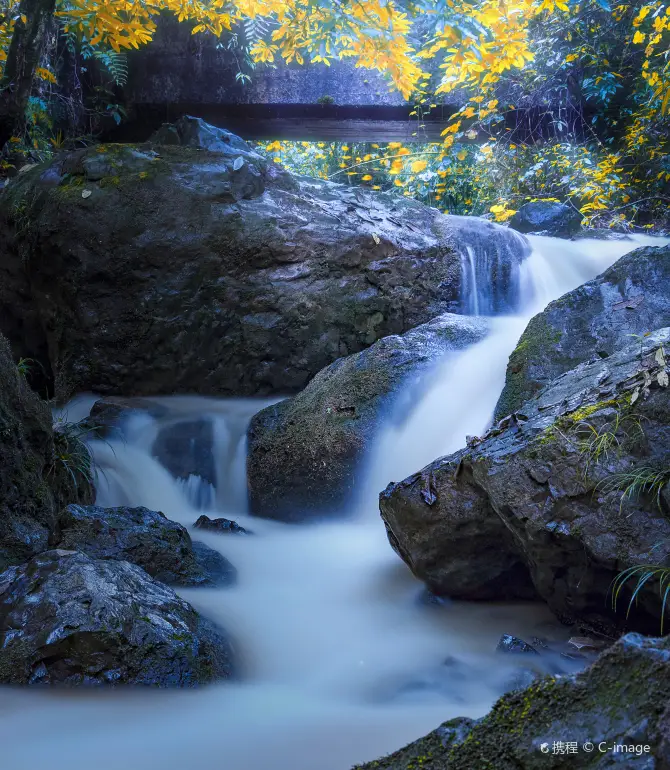
Mount Emei
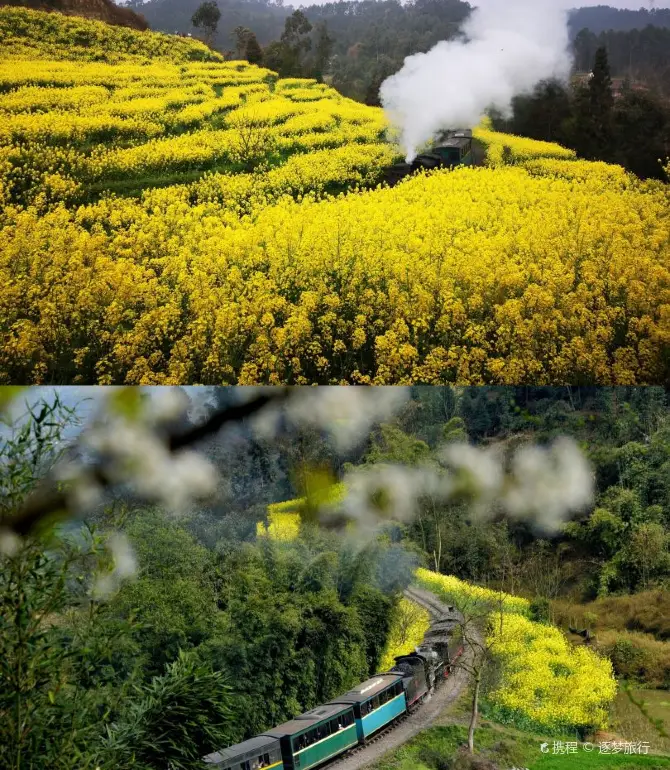
Qianwei County

Ebian
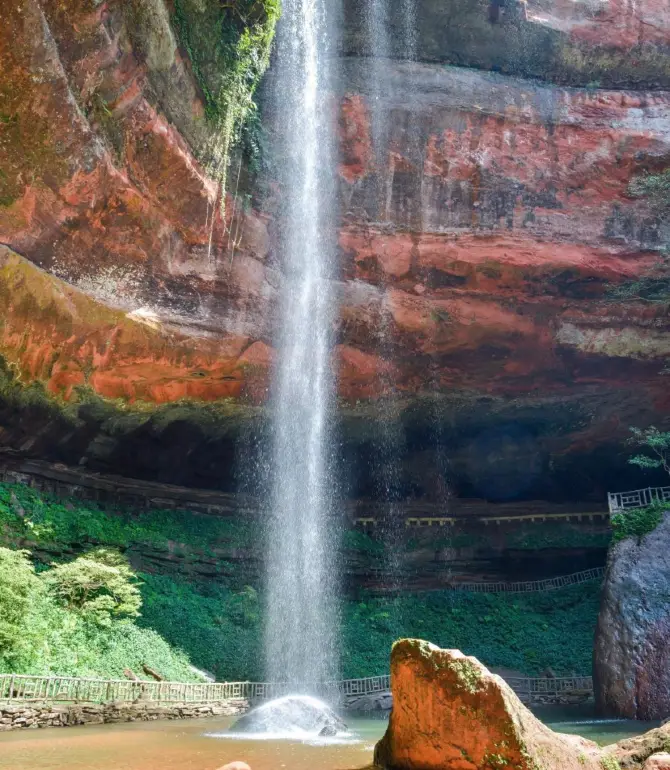
Muchuan
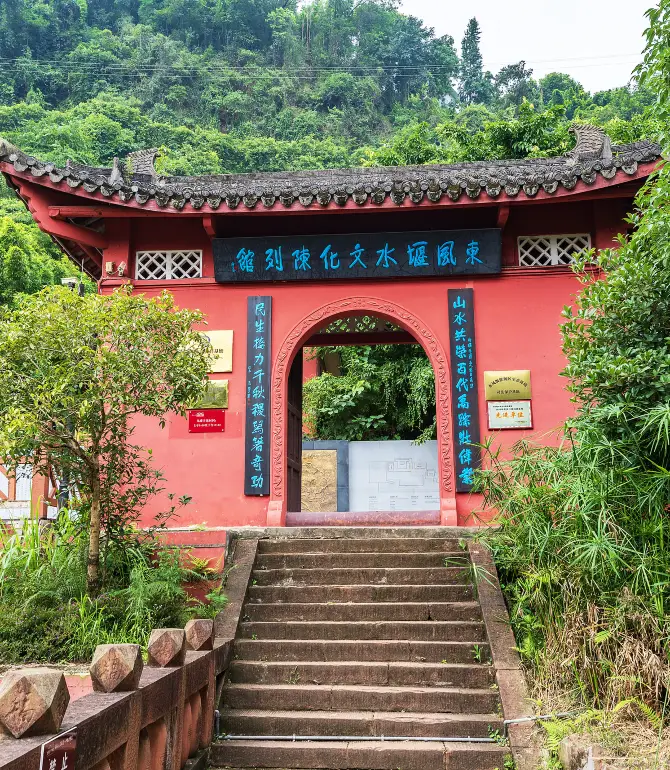
Jiajiang
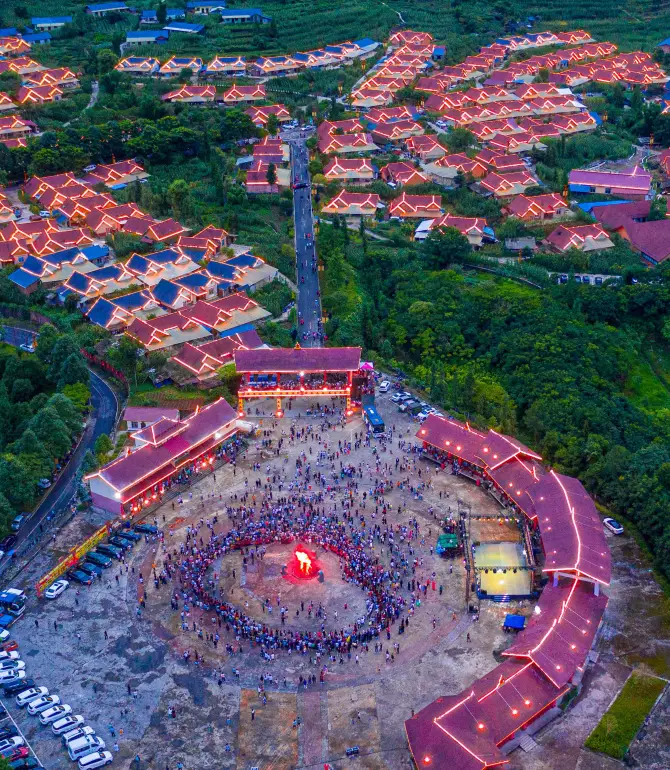
Mabian
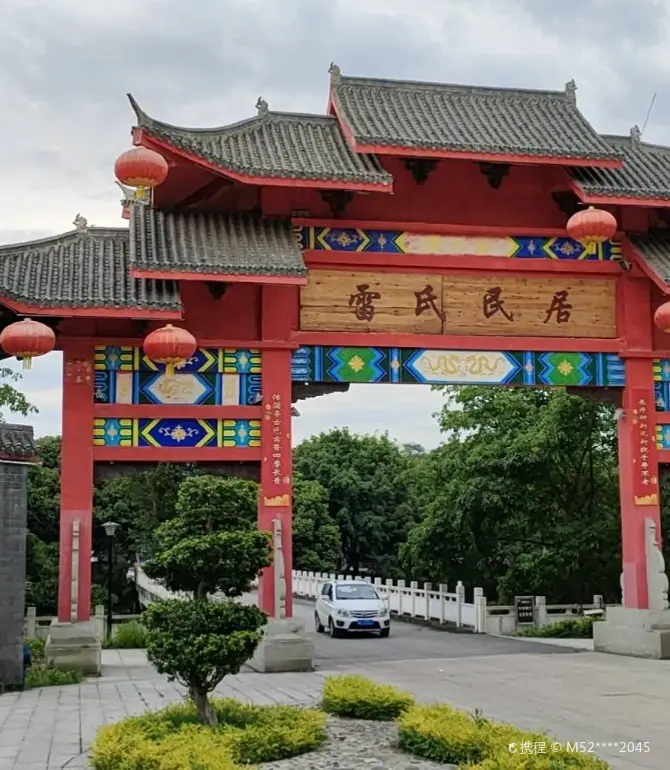
Jingyan
Things to do in Leshan
What to Do
Oriental Buddha Capital
Jiayang Narrow-Gauge Train
Suji Ancient Town
Where to Stay
What to Eat
Laodifangxianyuanniuyangroutangguoqiaojiao Beef (16nianlaozihaozong)
Jin shan e mei fei yi bo wu guan · gu fa chuan cheng mei shi
Leshan Moments: Through Travelers' Eyes

Don't miss this place when you go to Leshan!

Mount Emei will punish anyone who doesn't do their research.

Life Tip: Before Leaving Chengdu, You Must Visit This Place!!

Head to the Summit of Mount Emei for a Spring Rendezvous

First time seeing snow on Mount Emei! Copy this travel route!

Mount Emei is so stunning! I was amazed once again...

A Solo Adventure to the Giant Buddha of Leshan

Mount Emei Will Punish Anyone Who Doesn't Do Their Research
Best of Leshan
Site Operator: Trip.com Travel Singapore Pte. Ltd.
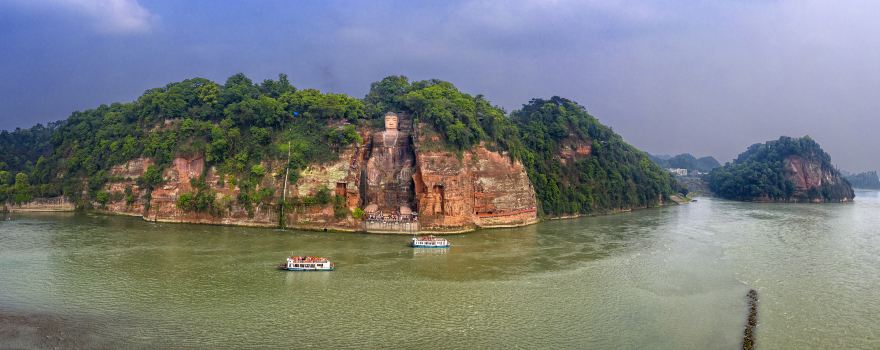

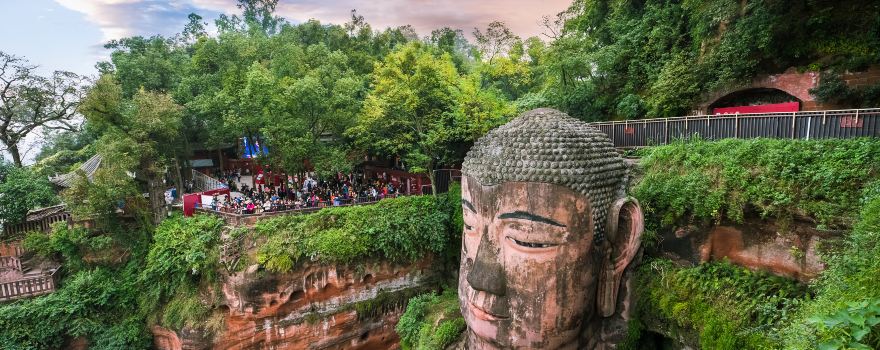
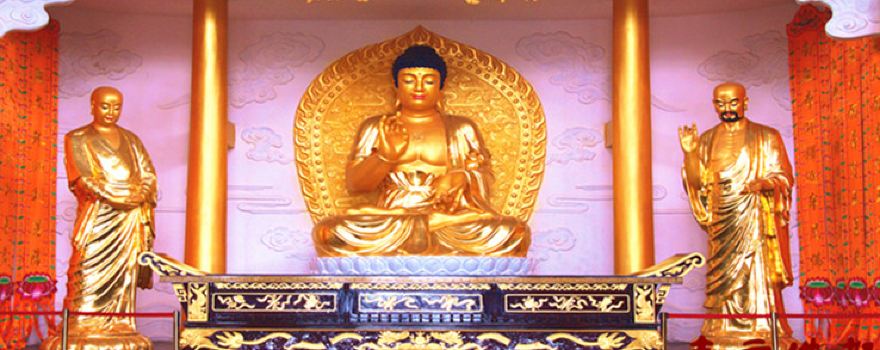











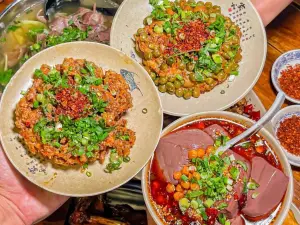
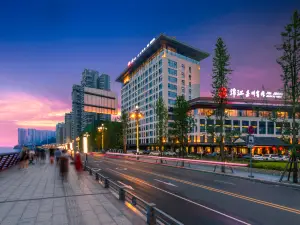
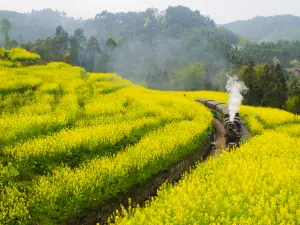

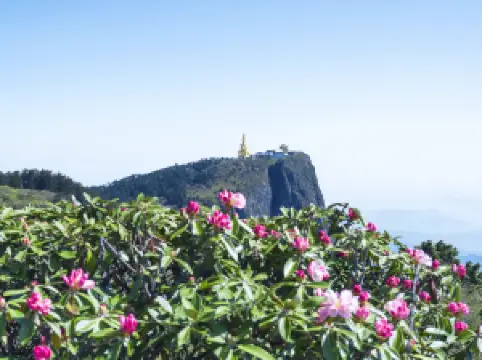
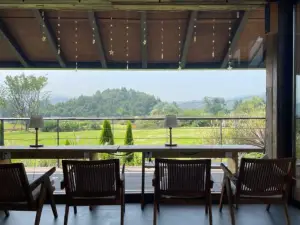



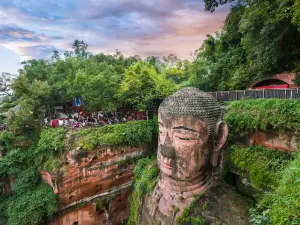
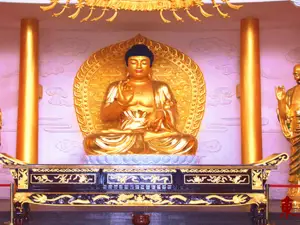
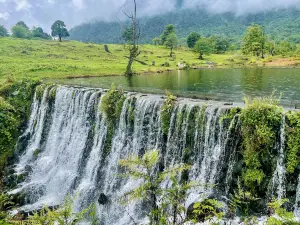
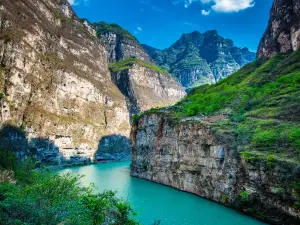
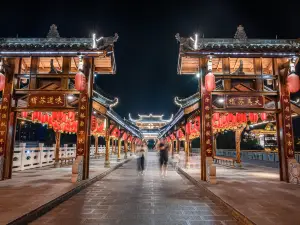



![From a beautiful dream Hotel [ The most popular hotels for tourists]](http://images4.c-ctrip.com/target/1mc6d12000d0072f58ABF_C_300_225_R5_Q70.jpg_.webp)








